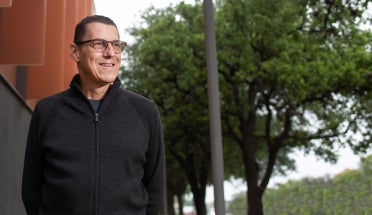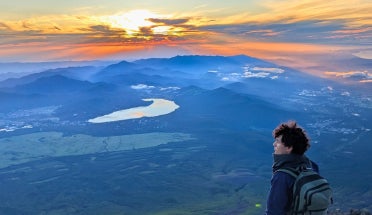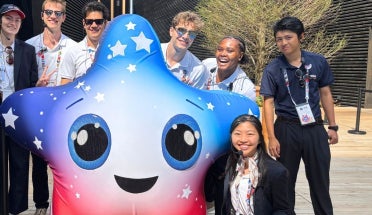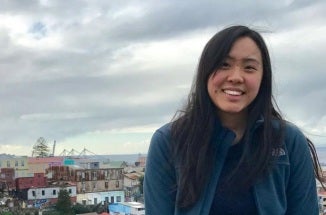
Future Physician Breaks Down Barriers in Chile
- Sep 22, 2017
- Education Abroad
Unforgettable, captivating, and eye-opening. That’s how Rose Yeh describes her study abroad experience in Chile.
Yeh, a graduating senior, participated in Texas Global's Latin America Initiative. The goal of this program is to double the number of Longhorns studying abroad in Latin America.
Tell us a little about yourself. What are you studying and what are your career goals?
I am a senior who is graduating this August. I am studying biochemistry and I want to pursue a career in the medical field as a physician. Right now, I am doing activities to reach that goal. I will be serving as teaching assistant for General Chemistry in the UT Chemistry Department this coming semester.
I will also be applying to medical school soon and am hoping to enroll next summer if things work out.
What motivated you to study abroad? And why in Latin America?
I wanted to study abroad to improve my Spanish fluency—not only conversationally, but also professionally. I wanted to learn medical terminology. What got me interested in the IES: Santiago study abroad program was the fact that it combined both a Spanish class and a health seminar that allowed me to learn about the healthcare system in Chile.
Who was your program coordinator?
Jessica Zerrer was my main program coordinator. She is amazing. I would send her an email whenever I had questions and she would respond promptly. She was my main support when applying for scholarships and during the pre-departure period.
Tell us more about your summer experience.
My study abroad experience lasted seven weeks. We had classes from 10:00 am- 6:00 pm from Monday through Thursday. I had two classes—a Spanish medical terminology class and a health seminar focused on problems and the healthcare system in Chile. The professors who taught the classes were from universities that are located in Chile.
My health seminar had an outreach portion. I worked in a community located in the low-income area of Santiago. It gave me a different perspective on things that I take for granted in the US. In the future, I want to serve underserved populations when I become a physician. They often are the ones that are lacking medical supplies and the right type of physicians that can help them. I would say that by helping them improve their health, we would improve the overall health system or improve some of the problems that are occurring in the US.
It sounds like your motivation to improve your language skills comes from your desire to communicate better with Spanish speaking people—perhaps future patients. Is that so?
Yes. About 50 percent of the population in Texas is Hispanic [and some patients do not speak English].
How has studying abroad changed your perspective of the world?
It made me more appreciative of what I have; of growing up in the US. It gave me a stronger appreciation for others, and it showed me how different backgrounds can influence the personality or way of being of a person. It made me more aware of my surroundings and it made me become more open-minded about different situations and circumstances.
Has studying abroad prepared you better for your future academic and professional plans?
Yes, it has. It exposed me to people that are culturally different from me but it also allowed me to relate to and understand them. It made me more open-minded. This is important because physicians need to take into consideration the patient's background when taking care of them.
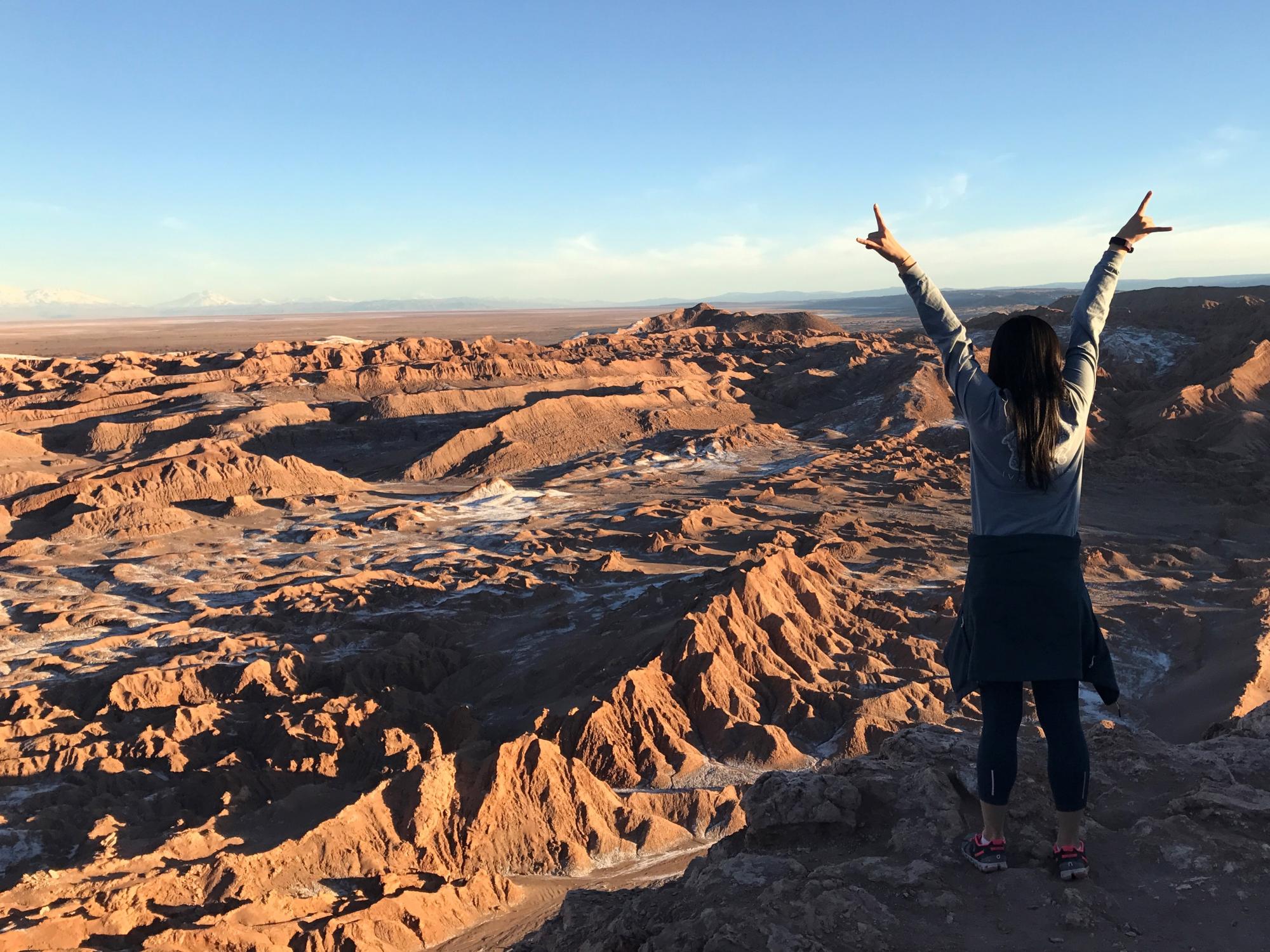
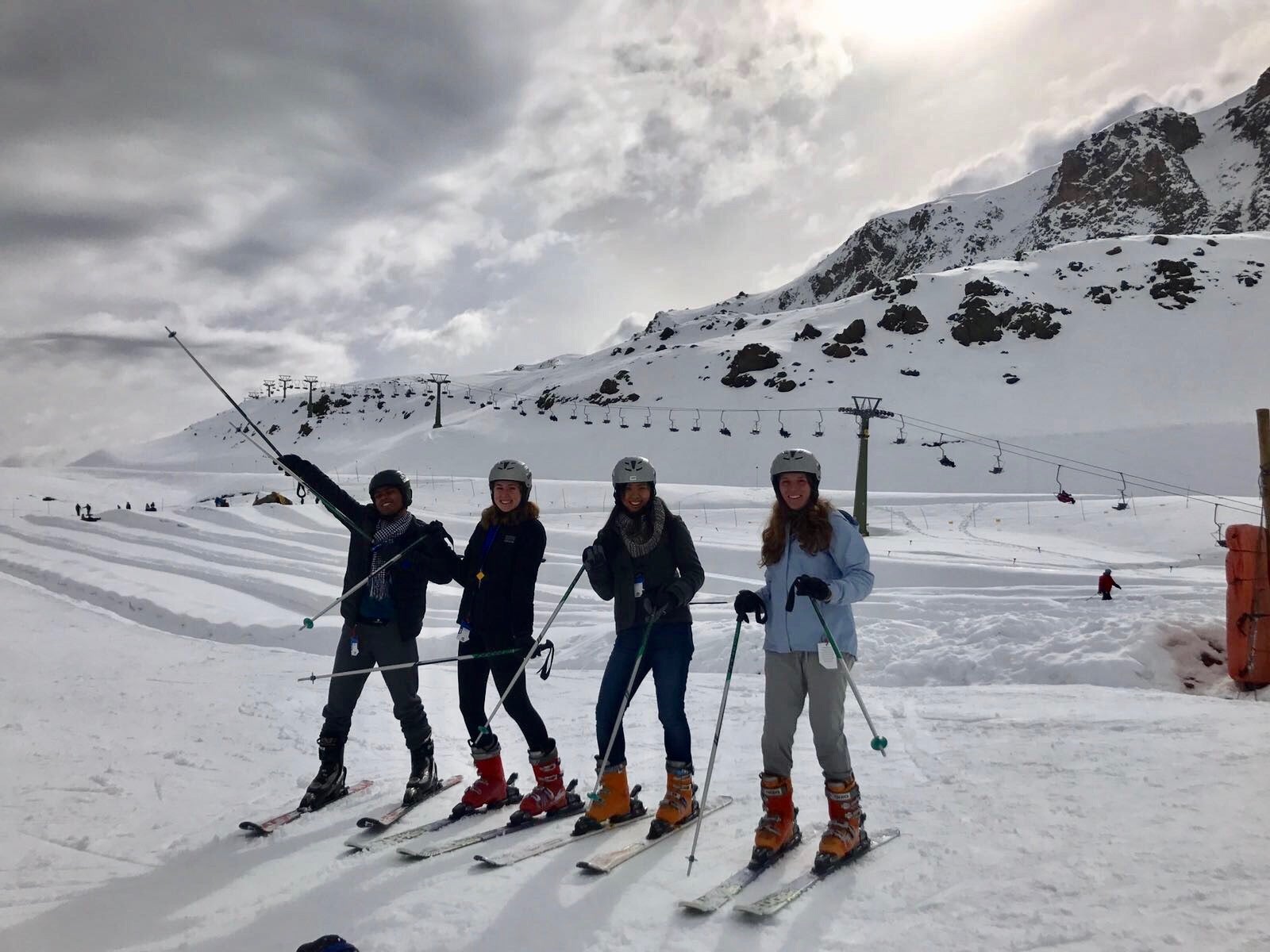
What was your favorite part of studying abroad in Chile?
My favorite part of the of studying abroad was getting immersed in the culture and getting to meet new people. People that have a different background or a different perspective on life.
Also, the good thing about the program was that we got the weekends off. This gave us the opportunity to learn more about the country. I had the opportunity to explore the city and surrounding cities.
What is your most cherished memory?
It would probably be when I watched the finals soccer game for the FIFA Confederations Cup Russia. It was Chile against Germany. That day I actually felt like a Chilean. I remember eating pollo asado (Chilean barbecue chicken) with a Chilean family while watching the game. They made me feel like a member of the family; that I wasn't an outsider. I did everything that day with them and it was just an experience that was so enjoyable and so memorable. Because of that experience, I want to go back in order to do it again.
Did you make any friends in Chile?
Yes. I was the only UT student that participated in this study abroad program. Most of the students were from northern states. I became friends with students from other universities. I also made Chilean friends and I actually want to go back during my winter break because I had such an amazing time during my study abroad program. Hopefully, I'll save enough money and if I plan it well, I will be able to visit.
Why should UT students study abroad?
Students should study abroad because it gives you a different perspective and outlook on life. It makes you more aware of everything that is happening around you. Not just by focusing on your own little bubble and what you want to achieve in life. It also makes you more open-minded about other cultures. As students, we have the opportunity to experience things that students from other countries might not have access to. In my case, it broke down a barrier of, "I am from the US."
How did you fund your study abroad experience? How much did scholarships factor in your ability to study abroad?
My scholarships actually paid for the majority of my study abroad experience—about 90 percent. I was very lucky and fortunate to receive enough scholarships.
In order to receive funding, I spent most of my time writing essays. Review committees were interested in learning why I wanted to study abroad and specific experiences that led me to want to study abroad.
What were some scholarships that you received?
I received the Fund for Education Abroad and the Gilman Scholarship. I also received two UT Scholarships—the Latin America Scholarship and the International Education Fee Scholarship (IEFS).
Did you have to complete any special projects for the programs that awarded you scholarships?
Yes. I had to write a few blogs and record some videos for the FEA Scholarship. I am also creating a blog that features some of my interactions with Chileans as my individual service project for the Gilman Scholarship. Additionally, I will be helping the International Office this coming semester by helping students prepare their essays for the Gilman Scholarship.
Based on your experience, how early should students start preparing their scholarship essays?
Each scholarship has their own deadline, but I would say to at least start two or three weeks in advance. Ask a few people to edit your work; this will help you get their perspective and what you need to work on. It will also let you know if anything needs to be highlighted.
Any special advice to first-generation students or students from underrepresented backgrounds?
I like to plan what I want to do before every semester. I sometimes do it a year in advance. Try to see how you can implement a study abroad program if you know what your schedule is going to look like.
Communicate with your parents about your financial situation and talk to your advisors to see if it is a possible choice. Honestly, most students do not take summer classes, so summer is the best option if you do not want it to interfere with [specific] courses.
Also, even if you are a bit shy, studying abroad gives you the opportunity to open up a little bit and just experience something different from what you are used to.
Do you have any advice for students who are about to embark on a study abroad adventure? What are three things they should pack?
Pack lightly. You can just switch clothes and keep doing that. Do not forget your camera (phone or actual camera), your charger, and your passport.
Learn more about our study abroad initiatives

